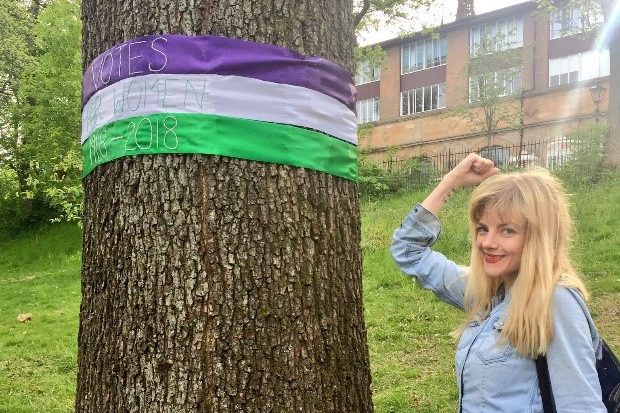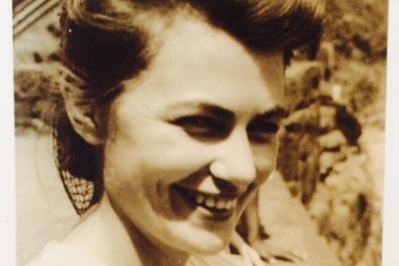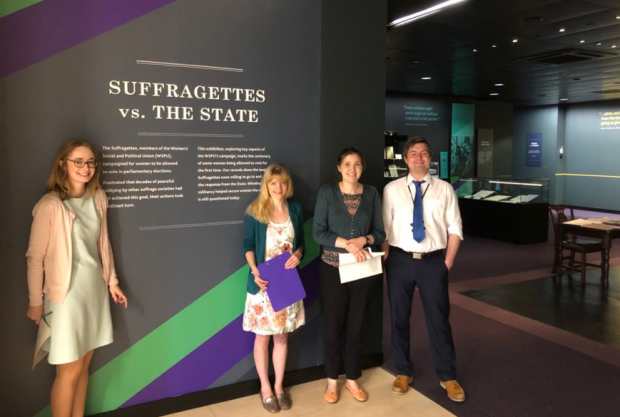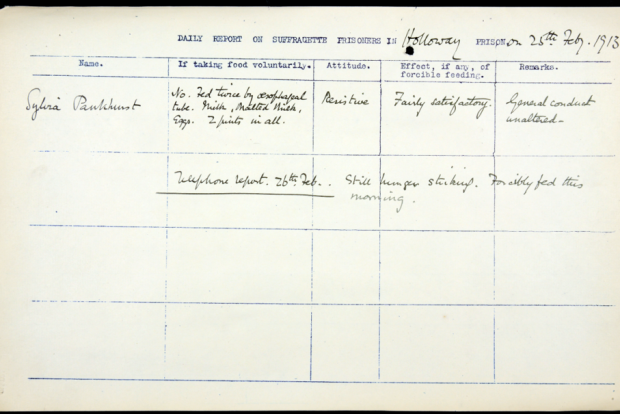
Profile
Job: Principal Records Specialist - Diverse Histories
Organisation: The National Archives (Department for Digitial, Culture, Media and Sport)
Years in public service: 6 years, 7 months
My grandmother/mother was a…
My grandma was a survivor.
My Polish grandmother (or Babcia as we called her) would adamantly not call herself a feminist, and yet she was the strongest female role in my life. I think she might have liked how frustrated and passionate I got arguing with her about it!
My Babica was set up for a comfortable life; the daughter of a factory owner in Poland, in a fine house with domestic servants, she planned to study botanical science - something she was passionate about to the end of her life.
Unlike other women at the time, her class status meant this really could have been possible for her. But everything was to change.
My grandma was 18 years old in 1940 when the Russians entered her part of Poland.
One night her father, as a factory owner was taken, shortly followed by my grandma, with her mother and sister, who were told to gather a handful of possessions and sent on cattle trucks to labour camps in Kazakhstan. Overnight her life changed, she was never to return to Poland.

Once they arrived at the camp, day-to-day existence was a battle of hard labour in the bitter cold and bartering anything they could find.
Despite the hardship she faced she found an odd sense of freedom in being able to see the world. When the Russians joined the Allied forces she signed up to the Second Polish Army under General Anders.
This took her to India; where she first worked in a wartime censorship office for the British Government and then copying the patterns of Persian carpets.
Throughout this time she drew comical illustrations of life around her. In many ways her existence was far less protected than it had been in Poland; as unbelievably tough as it was she also found it liberating.
On Indian independence she reluctantly came to England in 1947 on the Empire Brent, arriving in cold Liverpool – a bit of a contrast to the weather in her beloved Bombay. After these tumultuous years she was starting life again from scratch in England…
My role
I’ve always been inspired by my grandmas story – lived history talked about over a glass of wine is the best kind! I am lucky to have had so many conversations with her about her unintentional journey in her formative years around Europe, the Middle East and South Asia.
This all makes my current job pretty perfect for me. I get to focus on the forgotten voices and untold stories. I spend most of my time championing women, and other forgotten figures from history who cannot do it for themselves.
I am a shameless geek and a passionate feminist.
This year I have had the privilege of being a key part of The National Archives suffrage centenary campaigns. The best part of which has been listening to all the conversations about current gender equality which have been inspired by the passionate battles of suffrage supporters a century ago.
So often Suffragettes and Suffragists are seen as wanting the vote for the vote’s sake, but fundamentally it was needed for the electoral power women would gain to influence politics and society as a whole.
They were fighting for a better world for everyone; better working conditions, better childcare, maternity provisions, health care, equal pay - the list goes on!

It has been great to pay homage to their dedicated struggles this year and to get more people aware of the powerful items archives can hold.
If I had a magic wand, what I would do to accelerate gender equality?
I spend a lot of time thinking about what suffrage supporters from a hundred years ago would think about gender equality now.
We are certainly still talking about many of the same things; childcare provisions, equal pay, gender roles and domestic violence prevention, just to name a few things.
I think if I could do one thing to progress gender equality, it would be to shift the focus so we understand more about the multiple forms of oppression women can face.
For example how does ethnicity, disability, motherhood, gender identity, or sexuality compound with gender to hold women back? How can we tackle this?
Anything else you’d like to say
If you like women’s history we have so much of it at The National Archives. Most items can be ordered up in 45 minutes. Next time you want to be inspired to keep up the fight for gender equality, order up a 110 year old hunger striking record or prison petition in a Suffragettes own handwriting.

Smell the musty smell; turn the delicate pages; touch the actual paper; mentally trace the handwriting. Hear those voices roar out from the archives! You cannot help but be overwhelmed and inspired.
Subscribe to this blog for more stories from inspirational women. You can also follow Suffrage Centenary on Twitter.
2 comments
Comment by Caroline McElwee posted on
Fascinating story about your Grandmother Vicky. It certainly sounds like you have found your niche too.
Comment by C.igli@hotmail.co.uk posted on
Inspiring reading. Very true in everything you say.Keep up the good fight Victoria x